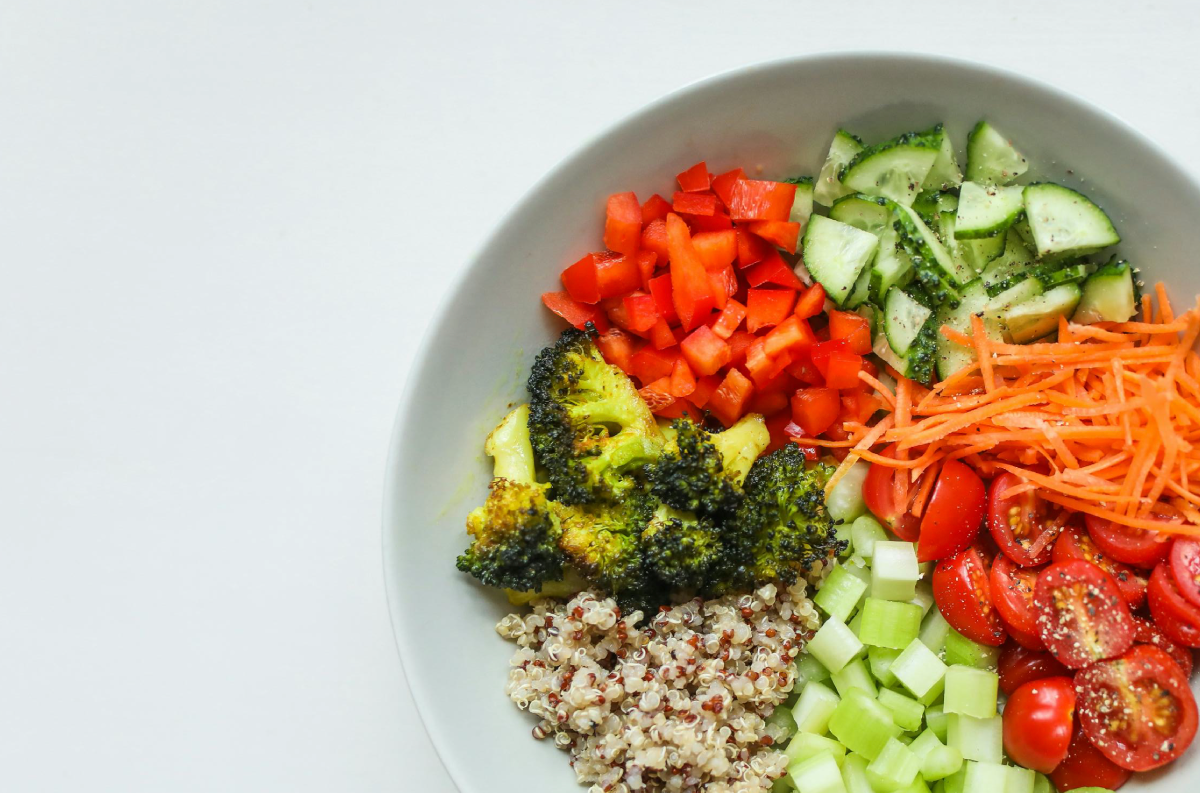
Plants and your brain: Why greens, reds and colourful foods are so protective
Most of us know that eating more plants is good for our heart, liver and digestion. But did you know it could also be one of the simplest ways to protect your brain for the long run?
As common sense as it sounds, recent research is also reminding us that the foods on our plate today can directly influence memory, focus and even our risk of dementia tomorrow.
Plants, dementia and prevention
A large Japanese study recently found that older women who met the daily recommendation of 400g of fruit and vegetables had a significantly lower risk of developing disabling dementia.
The most protective foods?
-
Cruciferous greens like broccoli and cabbage
-
Antioxidant-rich plants such as onions and berries
These plants deliver compounds that help keep brain cells firing, communicating and repairing themselves – processes that naturally decline the longer we are on the planet.
How plants protect your brain
Plants are rich in vitamins, minerals, unique phytochemicals, antioxidants and fibre that support your brain through multiple pathways:
-
Antioxidants and phytochemicals (like anthocyanins from blackcurrants, or sulforaphane from broccoli) help protect neurons against oxidative stress, a key driver of cognitive decline.
-
Anti-inflammatory compounds calm low-grade inflammation, which has been strongly linked to mood disorders and neurodegenerative diseases.
-
Fibre feeds your gut microbiome, which plays a surprisingly powerful role in mood and cognition through the gut–brain axis.
-
Micronutrients like magnesium and vitamin C found in abundance in leafy greens, are critical cofactors for neurotransmitter production – the brain chemicals that contribute to regulating memory, focus and mood.
Your brain’s “youth factor”
Fascinating findings from the UK Biobank study of over 44,000 people suggest that a youthful brain and immune system may matter more for longevity than even the heart or lungs.
Those with the most “youthful” brains had a 40% lower risk of death, and the number rose to 56% when both the brain and immune system were biologically younger.
This makes sense: your brain and immune system coordinate much of what happens throughout your body, plus the brain has its own immune system to protect its precious cells. Plants, with their nutrient diversity and protective compounds, nourish both systems in tandem.
Practical ways to boost brain health with plants
-
Eat the rainbow daily – aim for a variety of colours on your plate; each colour represents different protective compounds.
-
Prioritise cruciferous and leafy greens – broccoli, kale, cabbage and spinach have powerful effects on brain cell repair.
-
Include berries (purple) and red-coloured plant foods – rich in anthocyanins and polyphenols that protect memory and learning.
-
Support your microbiome – fibre-rich legumes, seeds and vegetables keep the gut–brain connection supported.
A scoop a day to help fill the gap
Even with the best intentions, most of us fall short of the daily 400g target. That’s why we created Organic Daily Greens & Reds – a concentrated blend of broccoli, beetroot, blackcurrants, barley grass, wheatgrass and dandelion.
-
No fillers, flavours or synthetic additives
-
Organic, food-sourced ingredients your body recognises
-
Six targeted plants in concentrated amounts, rather than 30+ ingredients in miniscule doses
-
Formulated by Dr Libby to deliver real-world benefits you can feel
Think of it as a daily insurance policy for your brain — alongside the colourful meals and whole foods you enjoy.
Nourishing your brain doesn’t require fancy hacks or extreme diets. It’s as simple as eating more plants, every single day. That last part is super important: every single day. Your neurons, memory and mood will thank you – both now and in decades to come.




